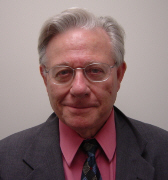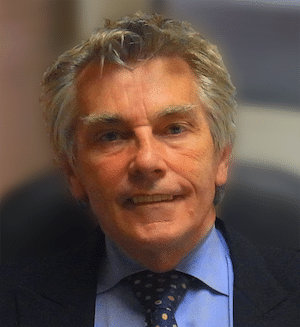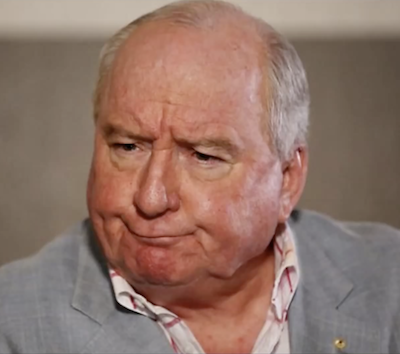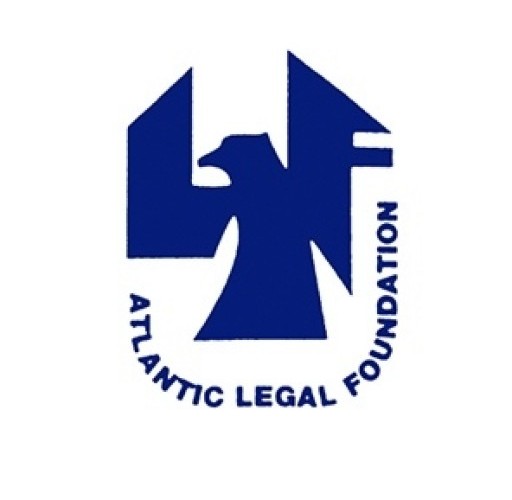A. Alan Moghissi
Credentials
- PhD, Physical Chemistry, Technical University of Karlsruhe in Germany.1“A. Alan Moghissi, PhD,” Atlantic Legal Foundation. Archived December 4, 2012. Archive.is URL: https://archive.is/fQJav
Background
Dr. A. Alan Moghissi is a former official with the U.S. Environmental Protection Agency (EPA). He retired from the EPA in 1985 and formed the Institute for Regulatory Science (RSI) where he currently serves as president.2“Contact Us,” Institute for Regulatory Science. Archived March 18, 2018. Archive.is URL: https://archive.is/khSjo 3“A. Alan Moghissi,” National Center for Policy Analysis. Archived January 13, 2006. Archive.is URL: https://archive.is/pnvCe
Moghissi is a long-time member of the American Council on Science and Health (ACSH), where he sits on their Board of Scientific Advisors. Moghissi served for several years as the Chairman of the Board until stepping down from that position in 2001.4“Alan Moghissi, Ph.D.” George Mason University. Archived March 18, 2018. Archive.is URL: https://archive.is/pho9W 5“Alan Moghissi,” American Council on Science and Health. Archived March 19, 2018. Archive.is URL: https://archive.is/NPHdg 6“American Council On Science And Health Names New Directors,” American Council on Science and Health, April 16, 2001. Archived March 19, 2018. Archive.is URL: https://archive.is/RFQIA
A 1998 issue of the Center for Media and Democracy’s PR Watch offered the following description of Moghissi’s role at ACSH:7“The Junkyard Dogs of Science” (PDF), PR Watch Vol. 5 No. 4 (Q4 1998).
“Moghissi characterizes environmentalism as a belief that ‘members of endangered species deserve protection and that, because there are billions of humans, humanity does not qualify for protection.’ As an ‘expert on risk assessment,’ Moghissi appears regularly on rosters of industry-supported ‘expert panels’ that work to undermine environmental regulations. He serves on the advisory board of numerous antienvironmental organizations and right-wing ‘think tanks,’ including the American Policy Center’s ‘EPA Watch,’ the Committee for a Constructive Tomorrow, the Advancement of Sound Science Coalition, and the National Wilderness Institute, a ‘wise use’ anti-environmental organization that calls for abolition of the Endangered Species Act.”
For Moghissi’s quote on environmentalism in context, see his original article, published in a 1998 issue of the ACSH publication Priorities.8A. Alan Moghissi. “The Three Greatest Challenges of the 20th Century,” Priorities (American Council on Science and Health publication), Volume 10, No. 2 & 3 (1998). Archived December 6, 1998.
Stance on Climate Change
October 1997
Moghissi was among contributors and reviewers listed in a ACSH report on “Global Climate Change and Human Health.” He was also a member of the ACSH board of directors at the time. The report concluded:9“Global Climate Change and Human Health” (PDF), American Council on Science and Health, October 1997.
“If global climate change occurs as gradually as the Intergovernmental Panel on Climate Change has predicted, policymakers can safely take several decades to plan a response, and scientists will have enough time to develop cost-effective anti-climate-change strategies.
“Implementation of current proposals for mitigation measures-measures to stabilize the concentration of greenhouse gases in the atmosphere-would be both costly and ineffective.
“Adaptational measures-measures to suit economies, healthcare systems, and living conditions to real-life, imminent, and foreseeable challenges to human health (for example, infectious diseases and weather disasters)should be the central component of any policy whose theme is the potential health impact of global climate change. […]”
Key Quotes
1998
Moghissi wrote the following statement in the ACSH publication Priorities, Volume 10: (Emphasis added)
“How can one convince a poverty-stricken parent whose child is sick or hungry that protecting the environment is important? Destitute people have little or no desire to protect the environment. There is a misconception within the environmentalist community that technologic development and protecting the environment are inherently incompatible. Apparently, many environmentalists neglect (a) the equivalence between poverty and exposure to the most toxic pollutants and (b) poverty’s causal relationship to environmental problems, such as the large-scale destruction of flora and fauna, soil erosion, and water pollution.
“While most industrialized societies have a good understanding of poverty and at least a marginal understanding of ignorance, what constitutes protecting the environment is controversial. In certain countries, advocates of environmental protection call themselves ecologists. One environmentalist slogan is ‘Support your ecology.; Most dictionaries (and the Natural Resources Defense Council) define ‘ecology’ primarily as a branch of science whose focus is the relationship between organisms and their environment. By this definition, an ecologist is a scientist specializing in the study of such relationships. But the cores of most environmental advocacy organizations do not consist of scientists proficient in that field. The philosophy of most environmentalist groups is, in effect, that members of endangered species deserve protection and that, because there are billions of humans, humanity does not qualify for protection.
“In the United States and in nearly all other democracies, environmental laws are established primarily to protect humans. For example, wildlife-preservation laws serve to maintain gene pools, which are potentially useful to human therapeutics. Although every civilized society has accepted avoidance of unnecessary harm to nonhuman animals as an ethical obligation, no society is willing to compare human lives to the lives of other organisms.
“In the next century, poverty, ignorance, and protecting the environment will be the greatest challenges to the world community. Public education with three foci—literacy, the sciences, and critical thinking—is necessary for the elimination of poverty. And the elimination of ignorance and poverty is necessary for efficient protection of the environment. Excessive allocation of resources to deal with one of the three challenges will probably further complicate dealing with the other two.”10A. Alan Moghissi. “The Three Greatest Challenges of the 20th Century,” Priorities (American Council on Science and Health publication), Volume 10, No. 2 & 3 (1998). Archived December 6, 1998.
Key Deeds
October 1997
Moghissi was a reviewer of an American Council on Science and Health (ACSH) special report titled “Global Climate Change and Human Health.”11“Global Climate Change and Human Health” (PDF), American Council on Science and Health, October 1997.
According to the report, “From the standpoint of public health, stringently limiting such emissions at present would not be prudent. Fossil-fuel combustion, the main source of human-induced greenhouse-gas emissions, is vital to high-yield agriculture and other practices that are fundamental to the well-being of the human population.”
The report also suggests that “policymakers can safely take several decades to plan a response,” assuming that climate change “occurs as gradually as the Intergovernmental Panel on Climate Change has predicted.”
1990
According to PR Watch, Moghissi served on a panel created by the libertarian Competitive Enterprise Institute in cooperation with Consumer Alert and the National Consumer Coalition to challenge the EPA’s policy requiring asbestos removal from schools and other public buildings.12Martin Donohoe. “Corporate Front Groups and the Abuse of Science,” Z Magazine, October, 2007. Archived January 19, 2016. Archive.is URL: https://archive.is/6TYWf 13“The Junkyard Dogs of Science” (PDF), PR Watch Vol. 5 No. 4 (Q4 1998).
Affiliations
- Institute for Regulatory Science (RSI) — President.14“Contact Us,” Institute for Regulatory Science. Archived March 18, 2018. Archive.is URL: https://archive.is/khSjo
- George Mason University (GMU) — Associate Director, International Center for Regulatory Science.15“Alan Moghissi, Ph.D.” George Mason University. Archived March 18, 2018. Archive.is URL: https://archive.is/pho9W
- The Center for the Study of Carbon Dioxide and Global Change — Scientific and Policy Advisor Board Member.16Center Brochure (PDF), Center for the Study of Carbon Dioxide and Global Change.
- American Council on Science and Health (ACSH) — Scientific Advisor. Listed as member of the “Founders Circle,” and Chairman of the Board until 2001.17“Scientific Advisors,” American Council on Science and Health. Archived March 27, 2012. Archive.is URL: https://archive.is/7DUSA 182005 Form 990 for the American Council on Science & Health (PDF). Conservative Transparency. Archived January 18, 2016. .pdf on file at DeSmog. 192003 Form 990 for the American Council on Science and Health (PDF). Conservative Transparency. Archived January 18, 2016. .pdf on file at DeSmog. 20“American Council On Science And Health Names New Directors,” American Council on Science and Health, April 16, 2001. Archived March 19, 2018. Archive.is URL: https://archive.is/RFQIA
- National Center for Policy Analysis (NCPA) — Adjunct Scholar (as of September/October, 2003). Formerly listed as a member of the NCPA “E-Team.”21Executive Alert Extra, Vol. 9, No. 5 (September/October 2003). A publication of the National Center for Policy Analysis. 22“A. Alan Moghissi,” National Center for Policy Analysis. Archived January 13, 2006. Archive.is URL: https://archive.is/pnvCe
- Atlantic Legal Foundation — Member, Advisory Board.23“Atlantic Legal Foundation’s Leadership,” Atlantic Legal Foundation. Archived September 10, 2015. Archive.is URL: https://archive.is/2Cg05
- EPA Watch / American Policy Center — Former member, Advisory Board. Note that he is no longer listed on the American Policy Center’s website.24 ”Factsheet: A. Alan Moghissi,” ExxonSecrets. Accessed January 16, 2016. 25“The Junkyard Dogs of Science” (PDF), PR Watch Vol. 5 No. 4 (Q4 1998).
- Committee for a Constructive Tomorrow (CFACT) — Member, Board of Advisors.26“CFACT Board of Advisors,” Committee for a Constructive Tomorrow, July 8, 2009. Archived March 19, 2018. Archive.is URL: https://archive.is/TejUQ
- National Wilderness Institute (NWI) — Former Board Member.27“NWI National Advisory Board,” National Wilderness Institute. Archived August 19, 2000.
- The Advancement of Sound Science Coalition (TASSC) — Former Board Member. TASSC is now defunct.28“CFACT Board of Advisors,” Committee for a Constructive Tomorrow, July 8, 2009. Archived March 19, 2018. Archive.is URL: https://archive.is/TejUQ
- Environmental Issues Council — Past Chair of the Science Advisory Committee. The Environmental Issues Council no longer appears to be in operation.29Science Advisory Committee, Environmental Issues Council. Archived March 23, 2002.
- Potomac Institute for Policy Studies — Senior Fellow and Member, Board of Regents.30“A. Alan Moghissi, PhD, Senior Fellow and Member, Board of Regents,” Potomoac Institute for Policy Studies. Archived January 16, 2016.
Publications
According to a search of Google Scholar, A. Alan Moghissi has not authored any articles in peer-reviewed journals on the subject of climate change.31Google Scholar search for articles containing “Climate” by author “Alan Moghissi.” Performed March 19, 2018.
Moghissi’s profile at George Mason University notes that “Alan Moghissi has published over 400 papers, including several books, has edited three scientific journals, and is a member of the editorial board of several other scientific journals.”32“Alan Moghissi, Ph.D.” George Mason University. Archived March 18, 2018. Archive.is URL: https://archive.is/pho9W
He is co-author to a number journal articles on the subject of environmental protection. Some samples below:
- Moghissi, A. Alan; Swetnam, Michael S. “The Role of Peer Review in Policy Decisions,” Technology & Innovation, Volume 12, Number 3, 2010 , pp. 203-211(9).
- Carter, Melvin W.; Maggiore, Peter; Alan Moghissi, A.; Love, Betty R.; Straja, Sorin R. “Metrics for Assessment of Environmental Benefits: Results of an Independent Scientific Assessment,” Technology, Volume 11, Number 2, 2008 , pp. 75-82(8).
- Love, Betty R.; Straja, Sorin R.; Streeter, James R.; Jones, Sharon D.; Alan Moghissi, A. “Stakeholder Participation: A New Process and Its Application to Environmental Decisions,” Technology, Volume 11, Number 2, 2008 , pp. 61-74(14).
Moghissi is also a co-author of the book Best Available Science, published by the Institute for Regulatory Studies.
Other Resources
- “A. Alan Moghissi,” SourceWatch.
- ExxonSecrets Factsheet: A. Alan Moghissi.
- “Deniers:Scientists:Alan A. Moghissi,” ExxonSecrets Wiki.
Resources
- 1“A. Alan Moghissi, PhD,” Atlantic Legal Foundation. Archived December 4, 2012. Archive.is URL: https://archive.is/fQJav
- 2“Contact Us,” Institute for Regulatory Science. Archived March 18, 2018. Archive.is URL: https://archive.is/khSjo
- 3“A. Alan Moghissi,” National Center for Policy Analysis. Archived January 13, 2006. Archive.is URL: https://archive.is/pnvCe
- 4“Alan Moghissi, Ph.D.” George Mason University. Archived March 18, 2018. Archive.is URL: https://archive.is/pho9W
- 5“Alan Moghissi,” American Council on Science and Health. Archived March 19, 2018. Archive.is URL: https://archive.is/NPHdg
- 6“American Council On Science And Health Names New Directors,” American Council on Science and Health, April 16, 2001. Archived March 19, 2018. Archive.is URL: https://archive.is/RFQIA
- 7“The Junkyard Dogs of Science” (PDF), PR Watch Vol. 5 No. 4 (Q4 1998).
- 8A. Alan Moghissi. “The Three Greatest Challenges of the 20th Century,” Priorities (American Council on Science and Health publication), Volume 10, No. 2 & 3 (1998). Archived December 6, 1998.
- 9“Global Climate Change and Human Health” (PDF), American Council on Science and Health, October 1997.
- 10A. Alan Moghissi. “The Three Greatest Challenges of the 20th Century,” Priorities (American Council on Science and Health publication), Volume 10, No. 2 & 3 (1998). Archived December 6, 1998.
- 11“Global Climate Change and Human Health” (PDF), American Council on Science and Health, October 1997.
- 12Martin Donohoe. “Corporate Front Groups and the Abuse of Science,” Z Magazine, October, 2007. Archived January 19, 2016. Archive.is URL: https://archive.is/6TYWf
- 13“The Junkyard Dogs of Science” (PDF), PR Watch Vol. 5 No. 4 (Q4 1998).
- 14“Contact Us,” Institute for Regulatory Science. Archived March 18, 2018. Archive.is URL: https://archive.is/khSjo
- 15“Alan Moghissi, Ph.D.” George Mason University. Archived March 18, 2018. Archive.is URL: https://archive.is/pho9W
- 16Center Brochure (PDF), Center for the Study of Carbon Dioxide and Global Change.
- 17“Scientific Advisors,” American Council on Science and Health. Archived March 27, 2012. Archive.is URL: https://archive.is/7DUSA
- 182005 Form 990 for the American Council on Science & Health (PDF). Conservative Transparency. Archived January 18, 2016. .pdf on file at DeSmog.
- 192003 Form 990 for the American Council on Science and Health (PDF). Conservative Transparency. Archived January 18, 2016. .pdf on file at DeSmog.
- 20“American Council On Science And Health Names New Directors,” American Council on Science and Health, April 16, 2001. Archived March 19, 2018. Archive.is URL: https://archive.is/RFQIA
- 21Executive Alert Extra, Vol. 9, No. 5 (September/October 2003). A publication of the National Center for Policy Analysis.
- 22“A. Alan Moghissi,” National Center for Policy Analysis. Archived January 13, 2006. Archive.is URL: https://archive.is/pnvCe
- 23“Atlantic Legal Foundation’s Leadership,” Atlantic Legal Foundation. Archived September 10, 2015. Archive.is URL: https://archive.is/2Cg05
- 24”Factsheet: A. Alan Moghissi,” ExxonSecrets. Accessed January 16, 2016.
- 25“The Junkyard Dogs of Science” (PDF), PR Watch Vol. 5 No. 4 (Q4 1998).
- 26“CFACT Board of Advisors,” Committee for a Constructive Tomorrow, July 8, 2009. Archived March 19, 2018. Archive.is URL: https://archive.is/TejUQ
- 27“NWI National Advisory Board,” National Wilderness Institute. Archived August 19, 2000.
- 28“CFACT Board of Advisors,” Committee for a Constructive Tomorrow, July 8, 2009. Archived March 19, 2018. Archive.is URL: https://archive.is/TejUQ
- 29Science Advisory Committee, Environmental Issues Council. Archived March 23, 2002.
- 30“A. Alan Moghissi, PhD, Senior Fellow and Member, Board of Regents,” Potomoac Institute for Policy Studies. Archived January 16, 2016.
- 31Google Scholar search for articles containing “Climate” by author “Alan Moghissi.” Performed March 19, 2018.
- 32“Alan Moghissi, Ph.D.” George Mason University. Archived March 18, 2018. Archive.is URL: https://archive.is/pho9W





